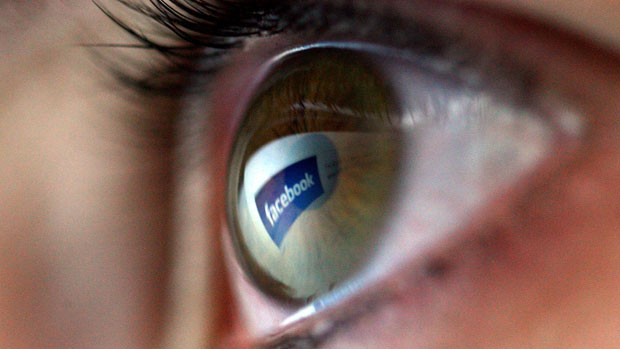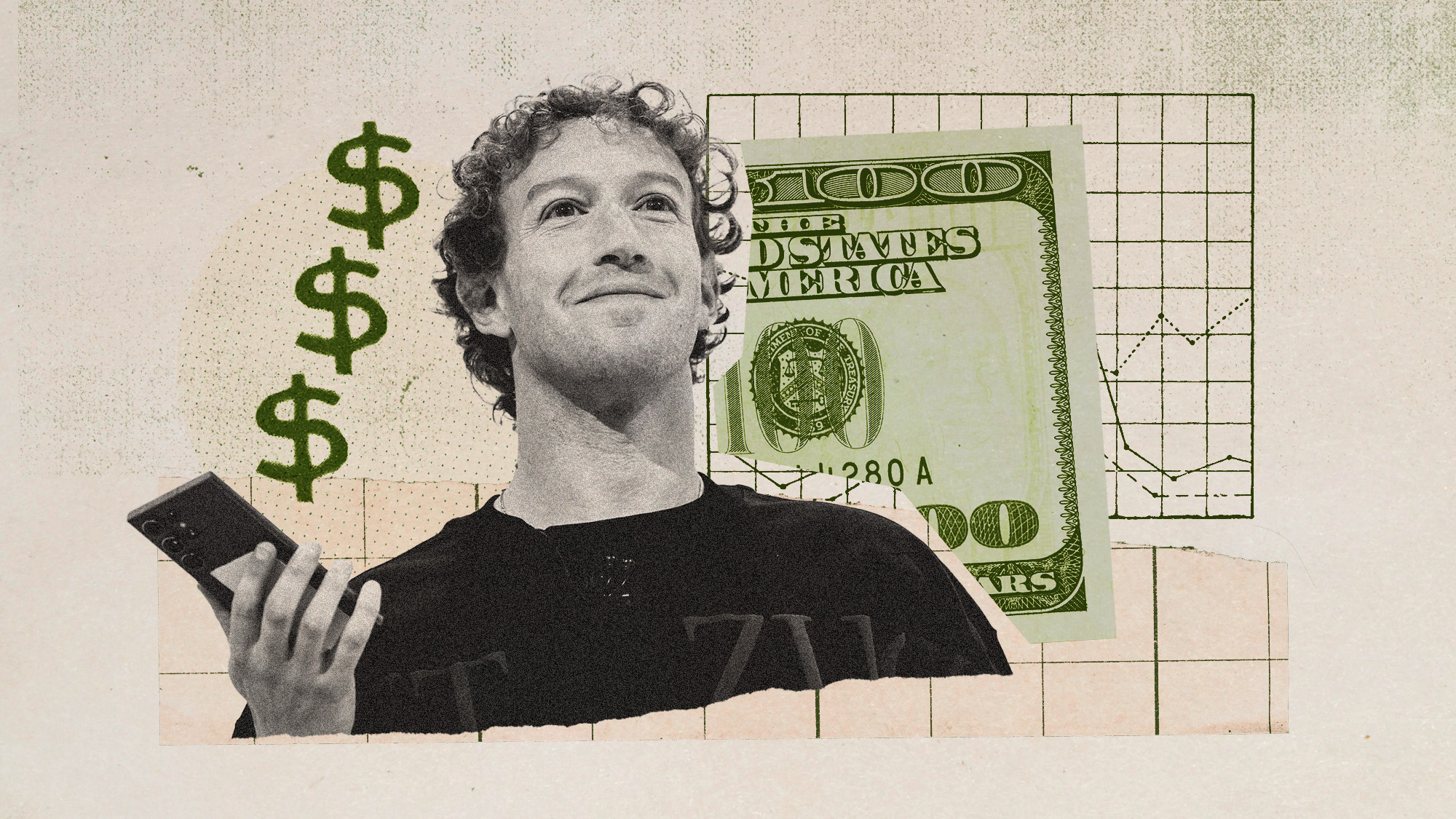Was Facebook's 'creepy' study funded by the US military?
Confusion over military involvement, but the American military is already studying you

A free daily email with the biggest news stories of the day – and the best features from TheWeek.com
You are now subscribed
Your newsletter sign-up was successful
Allegations have been made that Facebook's controversial "social contagion" experiment, conducted in partnership with Cornell University, could have been funded by the US military.
According to Mashable, the initial press release about the research issued by Cornell University claimed that it had received funding from the Army Research Office.
However, after criticism of the experiment arose, the original statement was amended to say that the study had not received any external funding.
The Week
Escape your echo chamber. Get the facts behind the news, plus analysis from multiple perspectives.

Sign up for The Week's Free Newsletters
From our morning news briefing to a weekly Good News Newsletter, get the best of The Week delivered directly to your inbox.
From our morning news briefing to a weekly Good News Newsletter, get the best of The Week delivered directly to your inbox.
The Army Research Office admits that it was shown the research proposal in 2008, but said that it declined to offer funding. Cornell University refused to comment on the matter.
Whether or not the Department of Defense (DoD) directly funded Facebook's study, it has been involved in several similar social media experiments in the past and is "already using Facebook to track your moods", reports US business news site Quartz.
One study funded by the department, also being conducted in collaboration with Cornell University, involves a social media analysis of users' feelings in order to identify "social tipping points".
Such points include "the 2011 Egyptian revolution, the 2011 Russian Duma elections and the 2013 Gazi park protests in Turkey", according to the Minerva Initiative, a Department of Defense project.
A free daily email with the biggest news stories of the day – and the best features from TheWeek.com
Studies of this kind have been going on for years, Quartz reports. Intelligence agencies acknowledge that analysis of social media posts has become one of their "most important tools" in intelligence gathering.
Lt Gen Michael Flynn, the director of the Defense Intelligence Agency acknowledges that "the information that we're able to extract form social media [is] giving us insights that frankly we never had before."
Facebook to face UK inquiry over psychological experiment
2 July
Facebook is being investigated by the UK data protection regulator after details of a controversial psychological experiment conducted on users of the social network without their consent emerged.
The Information Commissioner's Office (ICO) announced that it had begun an inquiry to assess whether Facebook broke UK data protection laws during the experiment, which manipulated users' new feeds to find out if they could be influenced by other people's updates on the social media site.
The regulator is responsible for investigating whether people's personal data has been misused and has the power to force companies to change their practices and can issue fines of up to £500,000.
The ICO said the investigation had only just begun and so it could not yet comment on which aspect of the law the social network may have infringed, the FT reports.
Facebook's 'emotional contagion' experiment involved manipulating users' news feeds in order to research the 'infectiousness' of people's moods. It discovered that the emotional bias of updates could influence the user's own updates.
Facebook's director of policy in Europe, Richard Allan said that the company would cooperate fully with regulators but insisted the study was carried out with the "appropriate protections".
"It's clear that people were upset by this study and we take responsibility for it. We want to do better in the future and are improving our process based on this feedback," he said.
It is still unclear if Facebook will face a similar inquiry from the American data protection regulator, the Federal Trade Commission.
Facebook criticised for 'creepy, unethical' social experiment
30 June
Facebook is facing a backlash as details emerge of a social experiment conducted on almost 700,000 users without their knowledge or consent.
The study investigated whether users of the social networking site could "infect" each other with their mood via what it calls "emotional contagion".
By editing what appeared on users' news feeds, researchers were able to conclude that those who were exposed to "happy" content were more likely to upload similar posts themselves. The reverse applied to users who experienced mostly negative content.
The research, carried out in partnership with the University of California and Cornell University in January 2012, has been described by Facebook users as 'creepy', 'unethical' and 'Orwellian'.
Facebook has defended the study, saying it was designed to "improve services" and make the content users see "as relevant and engaging as possible".
Jim Sheridan MP, a member of the Commons Media Select Committee has called for a parliamentary investigation into how social networks "manipulate" emotional and psychological responses, The Guardian reports.
"This is extraordinarily powerful stuff and if there is not already legislation on this, then there should be to protect people", he said.
"If people are being thought-controlled in this kind of way there needs to be protection and they at least need to know about it."
Many users have complained that such an experiment breaches ethical and legal guidelines, as users did not consent to being part of the study.
However, the study claims that the research method was "consistent with Facebook's data use policy, to which all users agree prior to creating an account on Facebook, constituting informed consent for this research".
Time to update my Internet-safety policies: Read Terms of Service, just in case they include organ harvesting next time. #Facebook — Katie Mack (@AstroKatie) June 29, 2014
"As long as the platform remains such an important gatekeeper — and their algorithms utterly opaque — we should be wary about the amount of power and trust we delegate to it," digital surveillance expert Jacob Silverman told The Wire.
I am shocked, shocked, that a company initially founded to creep on female classmates doesn't understand ethics and consent. #facebook — Andrew David Thaler (@SFriedScientist) June 30, 2014
Facebook's Adam Kramer, co-author of the research report, said the study only targeted 0.04 per cent of Facebook users for a one-week period in 2012.
However, he admitted that the researchers did not "clearly state our motivations in the paper".
"I can understand why some people have concerns about it, and my co-authors and I are very sorry for the way the paper described the research and any anxiety it caused."
Despite the backlash, some Facebook users came to the social network's defence. "People complain about Facebook as though it was a service they were forced to use, or were paying over the odds for," writes Chas Newkey-Burden in the Daily Telegraph. "Nobody is making you use Facebook and humanity survived for thousands of years without it – so if you are that angry with it, why not just leave?"
Wait a second: maybe the Facebook study is itself an experiment to see if it will make me write angry things on Twitter. — emilynussbaum (@emilynussbaum) June 28, 2014
-
 What to know before filing your own taxes for the first time
What to know before filing your own taxes for the first timethe explainer Tackle this financial milestone with confidence
-
 The biggest box office flops of the 21st century
The biggest box office flops of the 21st centuryin depth Unnecessary remakes and turgid, expensive CGI-fests highlight this list of these most notorious box-office losers
-
 The 10 most infamous abductions in modern history
The 10 most infamous abductions in modern historyin depth The taking of Savannah Guthrie’s mother, Nancy, is the latest in a long string of high-profile kidnappings
-
 Is social media over?
Is social media over?Today’s Big Question We may look back on 2025 as the moment social media jumped the shark
-
 Social media: How 'content' replaced friendship
Social media: How 'content' replaced friendshipFeature Facebook has shifted from connecting with friends to competing with entertainment companies
-
 Meta on trial: What will become of Mark Zuckerberg's social media empire?
Meta on trial: What will become of Mark Zuckerberg's social media empire?Today's Big Question Despite the CEO's attempt to ingratiate himself with Trump, Meta is on trial, accused by the U.S. government of breaking antitrust law
-
 What does an ex-executive's new memoir reveal about Meta's free speech pivot?
What does an ex-executive's new memoir reveal about Meta's free speech pivot?Today's Big Question 'Careless People' says Facebook was ready to do China censorship
-
 What's Mark Zuckerberg's net worth?
What's Mark Zuckerberg's net worth?In Depth The Meta magnate's products are a part of billions of lives
-
 Is the AI bubble deflating?
Is the AI bubble deflating?Today's Big Question Growing skepticism and high costs prompt reconsideration
-
 How social media is limiting political content
How social media is limiting political contentThe Explainer Critics say Meta's 'extraordinary move' to have less politics in users' feeds could be 'actively muzzling civic action'
-
 Twitter's year of Elon Musk: what happens next?
Twitter's year of Elon Musk: what happens next?In the Spotlight 'Your platform is dying', says one commentator, but new CEO is aiming for profitability next year